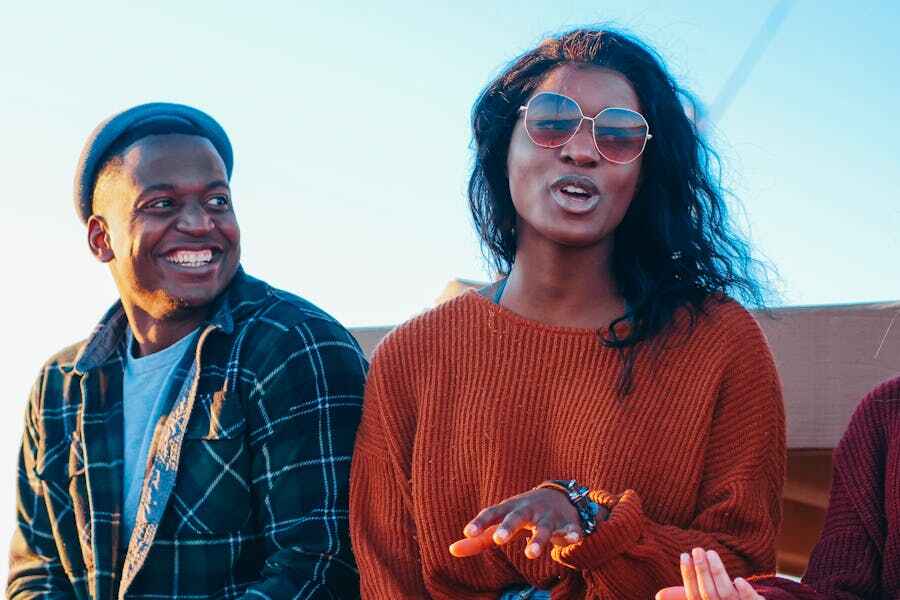Culture
BLK Drops New Sustainability & Dating Report: Young Black singles are prioritizing the planet—and their partners better be too
Based on responses from BLK users, the report dives into how young Black singles are integrating eco-consciousness into their everyday lives—from the brands they support to the relationships they pursue.

BLK, the largest dating and social app for the Black community, has released its first-ever Sustainability & Dating Report, offering a fresh, culturally-rooted look at how Black Millennials and Gen Z are thinking about climate, culture, and connection.
Based on responses from BLK users, the report dives into how young Black singles are integrating eco-consciousness into their everyday lives—from the brands they support to the relationships they pursue.
BLK Sustainability & Dating Report Key Findings:
- Nearly 80% say sustainability is important to them, with 46.5% calling it a top priority in their lives.
- 63% of young Black singles say sustainability matters in relationships and friendships—especially when it comes to shared values and long-term compatibility.
- 29.7% supported a Black-owned sustainable business in the past 6 months—making it the most common sustainable action reported.
- 1 in 5 have consciously cut back on fast fashion, while others reduce waste through public transit, composting, and mindful habits.
- 1 in 10 young Black singles say sustainability is a non-negotiable in relationships, and 20% view climate justice as a powerful romantic “green flag.”
- Over 1 in 10 have caught the “ick” from a date who wasn’t eco-aware—and 12.8% have ended a relationship over sustainability differences.
- 47% say they face no major roadblocks—they just do their best with what they have.
- Of those who do face barriers, 15.8% say it’s hard to tell which brands are truly ethical, and 13.8% feel sustainable products are too expensive.
- 20% wish their friend group cared more about sustainability, showing a desire for deeper cultural alignment.
“In the past, mainstream environmental narratives often left Black communities out of the conversation,” said Amber Cooper, Brand Manager for BLK. “But we’ve always been stewards of sustainability—whether through resourcefulness, community-based living, or investing in our neighborhoods. This report proves what we’ve known all along: caring for the Earth is deeply embedded in Black culture.”
Sustainability is the New Sexy
For today’s generation of Black singles, being eco-conscious is more than just a lifestyle—it’s a love language. BLK’s data shows that values around climate and justice are becoming social and romantic filters.
- 1 in 5 say caring about social and environmental justice is the ultimate green flag.
- Supporting Black-owned sustainable brands and cutting back on fast fashion ranked among the most popular sustainable lifestyle “flexes.”
- Even friendships are affected: over 10% say their entire friend group is “eco-conscious,” while 20% wish their friends cared more.
Whether it’s bringing reusable bags on a date or voting for climate policies, Gen Z and Millennial Black singles are setting new standards for what compatibility looks like—and sustainability is part of the equation.
BLK Sustainability & Dating Report : Challenges Still Exist
The report doesn’t shy away from the barriers. 14% said sustainable options are just too expensive, and 15.8% said they struggle to identify truly ethical brands. Others cite lack of community support or simply feeling overwhelmed. Still, nearly half (46.8%) say they don’t face any major roadblocks—they just do their best.
This honest, grounded approach reflects a wider truth: for many Black Americans, sustainability isn’t a curated aesthetic—it’s practical. It’s cultural. And it’s often born out of necessity. From reusing and repurposing to neighborhood gardening and low-waste living, eco-consciousness has long been part of Black life, even if mainstream narratives failed to recognize it.
Black communities are disproportionately affected by environmental injustice—from polluted air and water to urban heat islands and food deserts. But they’re also at the forefront of grassroots sustainability efforts. The report nods to this reality and calls attention to the intersection of climate and racial equity.
Discover more from Unheard Voices Magazine
Subscribe to get the latest posts sent to your email.
-

 In Memoriam4 days ago
In Memoriam4 days agoArmy Veteran William Govaniavic Venus dies delivering medicine amid Texas floods
-

 Crime & Justice1 week ago
Crime & Justice1 week agoNorth Carolina detention officer’s slaying devastates community; GoFundMe launched
-

 Police7 days ago
Police7 days agoNorth Carolina woman sues police after wrongful arrest
-

 News1 week ago
News1 week agoUPS Driver who saved woman’s life becomes lifelong supporter as she battles cancer
-

 News2 days ago
News2 days agoChicago Hero: Earl Abernathy rescues abducted infant amid gridlock traffic; GoFundMe launched
-

 In Memoriam7 days ago
In Memoriam7 days agoGoFundMe launched after Outlawz rapper Young Noble dies at 47
-

 Crime & Justice2 weeks ago
Crime & Justice2 weeks ago16-year-old football star and honor student killed in tragic shooting
-

 Social Justice2 days ago
Social Justice2 days agoGeorgia librarian fired over trans-inclusive display sparks legal fight and community support



























